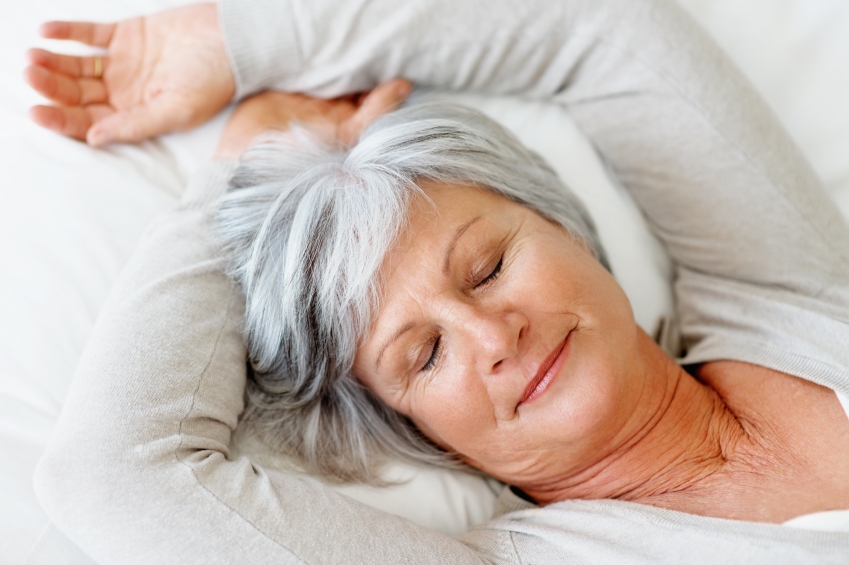Research is showing us that we have more control over getting a good night’s sleep–and all the benefits that come with it–than we might think.
It’s 4 a.m. as you stare at the ceiling. You’ve been in bed for hours, yet you remain wide awake. Dreading another day of feeling drowsy and tired, you wonder, What’s so wrong with my brain that it won’t just doze off when it’s supposed to?
What you may not realize is that the secret to a better night’s sleep might be less about your mind, and more about your body temperature.
Find Your Sweet Spot
Check the temperature of your room, and make sure that you aren’t succumbing to the effects of an overheated bedroom. According to the National Sleep Foundation, sleep experts recommend keeping your bedroom at 65 degrees. However, everyone is different and may have their own optimal temperatures based on the needs of their body. Experimenting with gradually cooler temperatures could help you find your ideal personal sleeping environment.

Download The Complete Guide to Health & Wellness for Seniors
As people grow older, their health and wellness needs change. Read our eBook, “The Complete Guide to Health & Wellness for Seniors” for everything you need to know about staying healthy and happy as we age.
Download the GuidePump Up your Metabolism
The benefits of keeping a cool room don’t end at a great night’s sleep. A study featured in The New York Times showed that a lower bedroom temperature can lead to an increase in the brown fat (considered “good fat”) that helps boost metabolism–even during the day.
By lowering the temperature of five healthy young men’s sleep environments to 66 degrees, researchers with the National Institutes of Health showed that the participants had nearly twice as much brown fat and more efficient metabolisms. The results were more calories burned during the day and a reduced risk for diseases such as diabetes.
Beauty Rest
According to bestselling author and naturopathic doctor Natasha Turner, sleeping in a room warmer than 70 degrees prevents the body from cooling down naturally and properly releasing melatonin.
Melatonin is one of the body’s anti-aging hormones and is released naturally with a drop in body temperature. This drop cues your body to release growth hormones that also help you to look and feel more alert and energized.
The Science of Sleep
The reason behind the sleep benefits of cooler temps has to do with your body’s core temperature, which follows a circadian pattern throughout a 24-hour period. This pattern reaches its peak around late afternoon and its bottom around 5 a.m.—a few hours before most people rise. A declining body temperature induces sleep, and a study of insomniacs showed that the inability to shed heat and remain cool could have been prohibiting their sleep, according to Dr. Christopher Winter in The Huffington Post.
While insomnia is a very real condition that deserves treatment, it’s possible that you aren’t giving your body a chance to properly cool down at night. If you think that might be the case for you, try turning down the thermostat and finding a cool sleeping temperature that works for you.
Note: Older adults should be sure to consult their doctors before drastically changing the temperature of their rooms.

